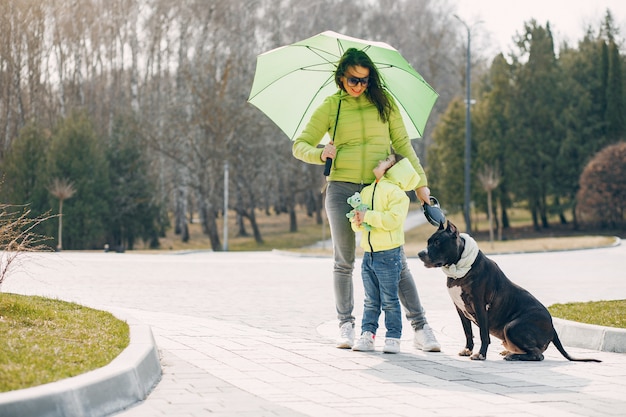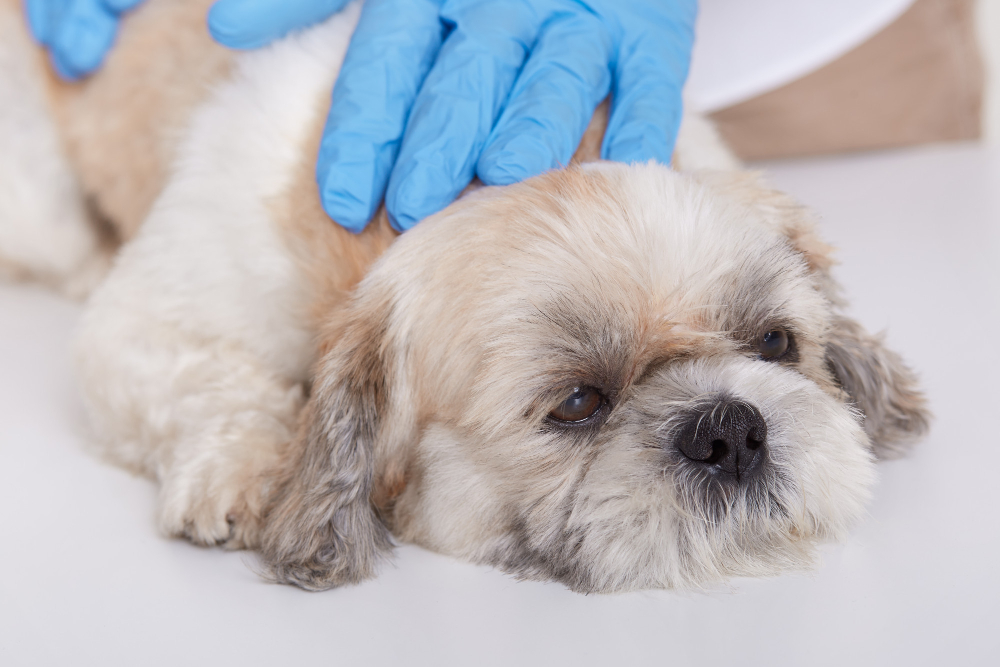Keeping Pets Comfortable During Florida’s Humid September Weather


Keeping Pets Comfortable During Florida’s Humid September Weather
As September arrives in Winter Garden, pet owners know that Florida’s heat and humidity can create extra challenges for keeping pets comfortable and healthy. Damp weather, muggy air, and sudden rain showers can quickly turn everyday routines into sources of stress for both pets and their people. At Hamlin Animal Hospital, located at 14410 Shoreside Way, Suite 130, Winter Garden, FL 34787, our veterinary team understands how the local climate affects your furry family members. Whether you are dealing with soggy paws, restless indoor days, or skin irritation, our goal is to help you create a comfortable environment for your pet all season long.
In this blog, we will explore the most common weather-related pet care challenges in Florida’s September humidity. You will find practical advice on managing wet paws, indoor enrichment, and skin care routines tailored to our local climate. We will also discuss when it is time to schedule a veterinary visit and how preventive care can keep your pet healthy through the humid months. If you are looking for expert guidance on pet care in humid weather or searching for a "vet near me" who understands the unique needs of pets in Winter Garden and surrounding communities, you have come to the right place.
Recognizing Signs of Discomfort: How Humidity Impacts Your Pet
Florida’s humidity can affect pets in ways that are not always obvious at first glance. Even if your pet seems to tolerate the warm weather, subtle signs of discomfort may develop as the moisture in the air lingers and temperatures fluctuate. Early recognition helps you take action before minor issues become bigger health concerns.
Key indicators of weather-related discomfort include persistent scratching, licking, or chewing at the paws or skin. You might notice that your pet is suddenly reluctant to go outside, especially after a rainstorm, or that their fur remains damp for longer than usual. Other signs are restlessness indoors, panting more than normal, or developing a musty odor. For dogs, wet weather may lead to muddy paws or red, inflamed skin between the toes. Cats might start grooming excessively or hiding in cooler, less humid areas of the house.
If you observe these changes, it could be a sign that your pet is feeling the effects of Florida’s September weather. In some cases, persistent skin problems or changes in behavior may indicate an underlying issue such as allergies or skin infections, which are more common in humid environments.
Why Does Humid Weather Cause Problems for Pets?
Understanding the causes behind pet discomfort during Florida’s humid months is the first step toward effective management. The region’s September weather is characterized by frequent rain, high humidity, and warm temperatures that rarely offer pets a break from moisture and heat.
Humidity increases the risk of skin irritation and infections because damp fur creates a perfect environment for bacteria and yeast to thrive. When pets walk on wet grass or surfaces, moisture can get trapped between their toes, leading to redness, swelling, and even fungal infections. Allergens such as mold spores and pollen are also more abundant in humid climates, often triggering flare-ups in pets with sensitive skin or seasonal allergies.
Additionally, pets may become less active if outdoor trips are cut short by rain or if they feel sticky and uncomfortable in the muggy air. This reduction in exercise can contribute to boredom, weight gain, and behavioral issues. For pets with long or dense coats, humidity can make it harder for them to regulate their body temperature, sometimes resulting in excessive panting or even heat stress.
The combination of these factors means that pet care in humid weather requires special attention to daily routines, skin care, and indoor enrichment. Our veterinarians at Hamlin Animal Hospital often see an increase in allergy-related skin problems and infections during September, highlighting the importance of preventive care and prompt intervention.
Managing Common Weather-Related Issues: Professional Help and Home Care
Many pet owners wonder what they can do to keep their pets comfortable during the rainy, humid months. The good news is that with a combination of professional support and at-home adjustments, most pets can thrive even when the weather is less than ideal.
Veterinary Care for Skin and Allergy Issues
If you notice persistent itching, redness, or hair loss, scheduling a comprehensive pet exam in Winter Garden is the best way to identify the underlying cause. Our veterinary team will evaluate your pet’s skin, check for infections, and recommend appropriate treatments. Management may involve medicated shampoos, topical treatments, or vet-recommended medications in more severe cases. Pets with recurring problems may benefit from allergy testing to identify specific triggers in the environment.
For ongoing skin problems, our dermatology services provide advanced diagnostics and treatment options tailored to your pet’s needs. This is especially important in humid climates, where skin infections can progress rapidly if left untreated. If your pet's symptoms include open sores, persistent odor, or swelling, prompt veterinary attention is essential to prevent complications.
Managing Wet Paws and Damp Fur
After every walk or outdoor play session, gently drying your pet’s paws and fur with a clean towel helps reduce the risk of irritation and infection. Pay particular attention to the spaces between the toes, where moisture can linger unnoticed. For pets with long hair, regular grooming and trimming around the feet can make cleaning easier and prevent matting.
If your pet is sensitive to lawn chemicals or has a history of skin allergies, rinsing their paws with water after outdoor activities may help remove irritants. For dogs that are prone to muddy adventures, keeping a designated drying area near your entryway can make cleanup more manageable.
Indoor Enrichment When Outdoor Time Is Limited
Rainy days and high humidity can limit outdoor exercise, but it is important to keep your pet mentally and physically stimulated indoors. Rotate toys, introduce interactive games, and create simple obstacle courses with household items to encourage movement. For dogs, practicing training cues or scent games can provide valuable enrichment. Cats may enjoy window perches, puzzle feeders, or vertical climbing spaces.
Providing fresh, cool water at all times is essential, as pets may drink more in humid weather to stay hydrated. Regularly check and clean water bowls to prevent the growth of bacteria, especially in warm, damp conditions.
Prevention and Home Care: Creating a Comfortable Environment
Prevention is key when managing pet care in humid weather. Small changes to your daily routine can make a significant difference in your pet’s comfort and health.
Steps for prevention include maintaining a regular grooming schedule to keep your pet’s coat clean and free of mats. Brushing helps remove excess moisture and loose hair, reducing the risk of skin problems. Bathing your pet with a veterinarian-approved shampoo can help control allergens and maintain healthy skin, but avoid over-bathing, which can strip natural oils.
Monitor indoor humidity levels with a hygrometer and consider using a dehumidifier in areas where your pet spends the most time. This can be especially helpful for pets with respiratory issues or those prone to skin irritation. Ensuring your home is well-ventilated and clean helps limit mold and dust accumulation, both of which can worsen allergy symptoms.
For pets that spend time outside, provide shaded, dry areas where they can escape the sun and rain. Avoid walking your dog during the hottest parts of the day, and watch for signs of overheating, such as excessive panting or lethargy. Always check your pet’s paws for cuts, debris, or irritation after outdoor activities.
If you are concerned about skin changes or allergy symptoms, our allergy testing and dermatology services in Winter Garden are designed to address the unique needs of pets living in a humid climate.
When to Schedule a Veterinary Visit: Knowing When Help Is Needed
While many minor discomforts can be managed at home, some situations require professional intervention. Knowing when to seek veterinary care in Winter Garden can prevent complications and help your pet recover more quickly.
Warning signs that indicate a need for medical attention include persistent scratching, open sores, hair loss, or a sudden change in behavior such as hiding or refusing to eat. Other red flags are swelling, foul odors, or discharge from the skin or ears. If your pet develops a fever, acts lethargic, or seems to be in pain, do not delay—these symptoms can signal infection or more serious underlying conditions.
Scheduling a wellness examination allows our veterinary professionals to assess your pet’s overall health and catch issues early. Preventive care programs at Hamlin Animal Hospital are designed to support your pet year-round, adjusting recommendations as local weather conditions change.
If you ever feel unsure about your pet’s symptoms or want tailored advice for Florida pet comfort tips, our veterinarians are here to help. Prompt attention can make all the difference, especially during the unpredictable weather of September.
Conclusion: Prioritizing Pet Comfort in Florida’s Humid Season
Navigating the challenges of pet care in humid weather requires a combination of vigilance, routine, and support from a knowledgeable veterinary team. By recognizing early signs of discomfort, understanding the impact of local climate, and implementing preventive measures at home, you can help your pet stay comfortable and healthy through Florida’s muggy September days.
Hamlin Animal Hospital is proud to provide comprehensive veterinary services in Winter Garden and surrounding communities. Our team is committed to building lasting relationships with pet owners and offering personalized care for every life stage and season. If you have questions about your pet’s comfort, are concerned about skin or allergy symptoms, or simply want to ensure your furry friend is prepared for the weather ahead, we invite you to schedule an appointment with our veterinarians.
To book your visit or ask about preventive care programs, call (407) 872-7772 or stop by our convenient Winter Garden location. For more expert advice and Florida pet comfort tips, visit the Hamlin Animal Hospital Blog. If you are searching for a trusted "vet near me" or looking for the best pet care in humid weather, Hamlin Animal Hospital is here to support you and your pet every step of the way.
If you ever notice severe symptoms or are unsure about your pet’s health, always consult with your veterinarian promptly. This blog is for informational purposes and does not replace professional veterinary care.





















